Posted on 1/31/2025
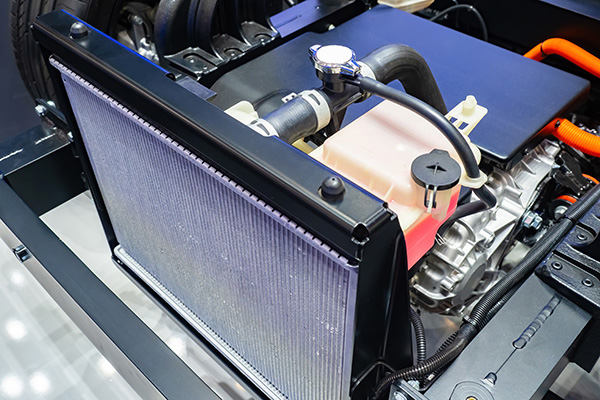
Your vehicle's engine is a powerhouse of moving parts and intense heat. Without the right systems in place to manage this heat, your engine could quickly overheat, leading to significant damage and expensive repairs. One of the most critical elements in your car’s cooling system is radiator coolant, a fluid that plays an essential role in keeping your engine safe and operational. But how exactly does it work? Let’s take a closer look at how radiator coolant protects your engine and why it’s vital to give this often-overlooked fluid the attention it deserves. Radiator Coolant Radiator coolant, also known as antifreeze, is a liquid mixture designed to regulate the temperature of your car’s engine. It typically combines water with ethylene glycol or propylene glycol and often contains additives that help prevent corrosion and improve performance. This fluid isn’t just about keeping your engine cool in the summer; it also prevents free ... read more
Posted on 12/20/2024

Waking up to a frosted windshield on a chilly morning isn’t just inconvenient—it can throw off your entire schedule. If you’ve ever wondered why frost builds up on your windshield and, more importantly, how to stop it, you've come to the right place. We'll explain the science behind this frosty annoyance and explore some easy ways to keep your windshield clear, especially during those crisp mornings in Sebastopol, CA. Why Does Frost Form on Your Windshield Frost develops when the temperature of your windshield drops below the dew point, causing moisture in the air to condense and freeze. This often happens overnight when temperatures are at their lowest. Interestingly, your windshield is particularly susceptible because it’s exposed to the open air. The glass cools quickly, especially if there’s little insulation from your car’s interior. Factors like humidity, parked location, and even the direction your vehicle is facing ... read more
Posted on 11/29/2024
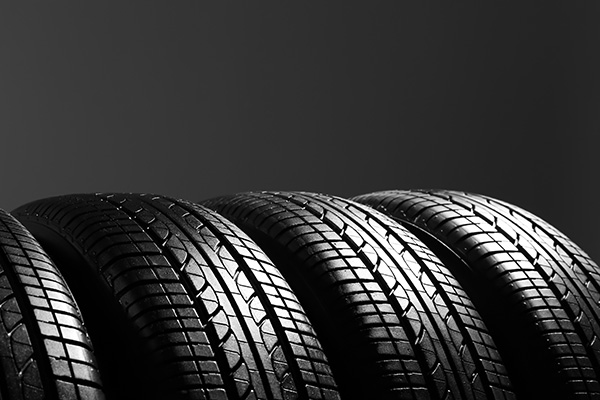
When it’s time to replace your tires, you may wonder whether to buy just one, a pair, or a complete set. While replacing a single tire might seem like the more budget-friendly option, purchasing tires in sets offers significant benefits for your vehicle's performance, safety, and long-term savings. Let’s explore why buying four tires at once is the smartest move for your car. Ensuring Balanced Performance Your vehicle relies on all four tires working together to maintain proper balance and control. Tires wear down over time, and even slight differences in tread depth can disrupt handling. When you replace only one or two tires, the new ones will grip the road differently than the older ones. This mismatch can lead to uneven wear, reduced stability, and less predictable behavior when braking or cornering. By purchasing a complete set, you guarant ... read more
Posted on 10/31/2024
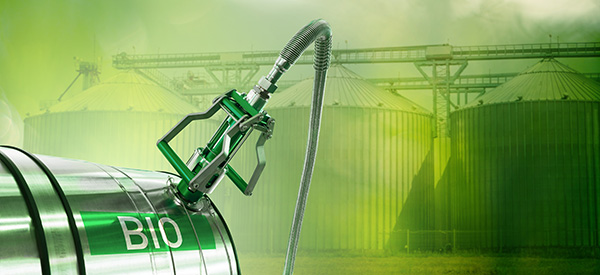
In recent years, biofuels have gained significant attention as a possible solution to reducing our reliance on fossil fuels. With climate change concerns growing and the world seeking cleaner alternatives for energy, biofuels are often seen as a more sustainable option. However, like any energy source, biofuels have their own advantages and disadvantages. So, are biofuels the future of energy, or do they have hidden downsides? What Are Biofuels Biofuels are derived from organic materials, also known as biomass, including plants, agricultural waste, and animal by-products. Unlike traditional fossil fuels that take millions of years to form, biofuels are renewable and can be replenished quickly. The most common types of biofuels include ethanol (produced from crops like corn and sugarcane) and biodiesel (made from vegetable oils and animal fats). Pros of Biofuels Renewable Energy Source One of the most significant advantages of biofuels is that ... read more
Posted on 9/27/2024
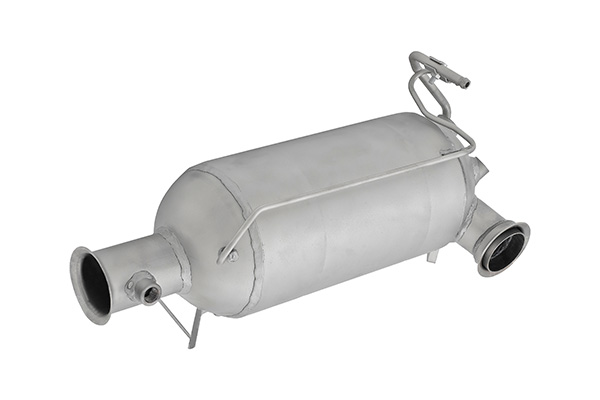
If you live in an area that requires SMOG tests, you know how crucial it is to pass to keep your car on the road. But what happens when your car fails the test, and you’re left scrambling for answers? One often overlooked culprit behind SMOG test failures is a clogged catalytic converter. You may have heard of the catalytic converter, but how does it relate to your car’s emissions and, ultimately, your ability to pass the test? What is a Catalytic Converter This device is an essential part of your car’s exhaust system. Its job is to reduce harmful emissions by converting pollutants like carbon monoxide, nitrogen oxides, and hydrocarbons into less harmful gasses such as carbon dioxide and water vapor. Without a functioning catalytic converter, your vehicle would spew out dangerous levels of toxic gasses into the air, making it impossible to meet emission sta ... read more
Posted on 8/30/2024
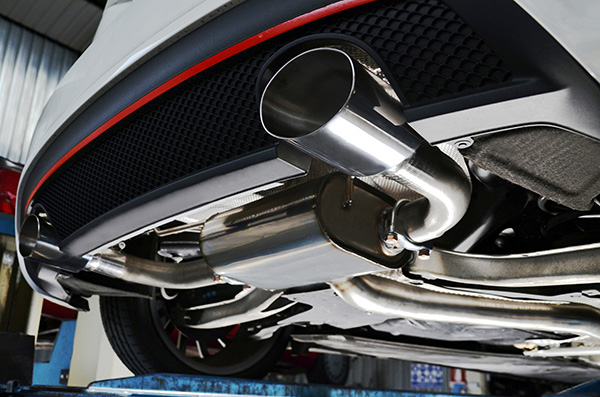
If you've noticed your car's exhaust suddenly making loud noises, it's time to pay attention. Not only can a noisy exhaust be a sign of trouble, but it can also turn heads for all the wrong reasons. But what could be causing this racket, and what should you do about it? We'll share the common causes of loud exhaust, why it's a problem, and how to get your car back to its quiet, smooth-running self. Why Is a Noisy Exhaust a Big Deal? A loud exhaust isn’t just an annoyance; it’s often a red flag for underlying issues that could affect your car’s performance, fuel efficiency, and even your safety. Whether it's a growling, hissing, or rattling noise, these sounds can indicate a range of problems, from something as simple as a loose part to more severe issues like a cracked exhaust manifold or a failing muffler. Ignoring these signs can lead to bigger, more expensive repairs down the road. Common Causes of a Loud Exhaust ... read more
Posted on 7/26/2024
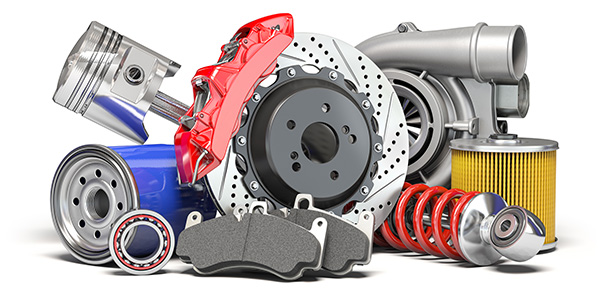
When it comes to maintaining and repairing your vehicle, one of the most critical decisions you'll face is whether to use original equipment manufacturer (OEM) parts or aftermarket parts. This decision can impact not only the performance and longevity of your car but also your wallet. So, what are the pros and cons of aftermarket parts? The Aftermarket Parts Before discussing advantages and disadvantages, it's essential to understand what aftermarket parts are. Aftermarket parts are components made by companies other than the original vehicle manufacturer. These parts are designed to fit and function like OEM parts but can vary in terms of quality, price, and availability. The Advantages of Aftermarket Parts One of the most significant benefits of aftermarket parts is cost savings. Generally, aftermarket parts are less expensive than OEM parts, which can make a big difference, especially if you're dealing with major repairs or replaceme ... read more
Posted on 6/27/2024
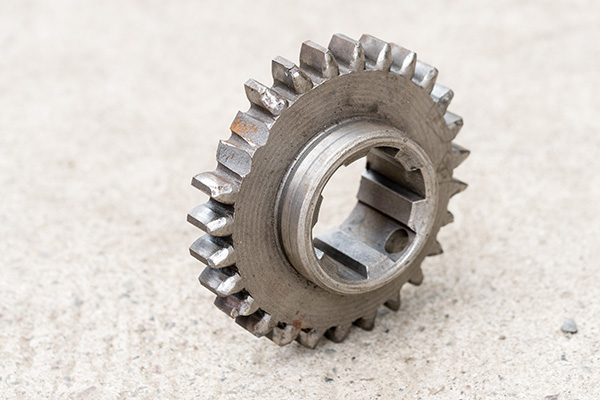
Do you know that your everyday driving habits might be slowly damaging your car's transmission? It's true! Many drivers unknowingly engage in behaviors that can shorten the lifespan of this vital component. Let's explore the five most common driving habits that are detrimental to your transmission and learn how to keep your car in top shape. 1. Shifting Gears While the Car is MovingWhy It's Harmful Shifting gears while your car is still moving can wreak havoc on your transmission. This habit especially damages automatic transmissions, as it forces the transmission to engage and disengage gears under stress. The result? Increased wear and tear on the transmission components. How to Avoid It Always come to a complete stop before shifting gears. Whether you're shifting from drive to reverse or vice versa, make sure your vehicle is stationary to prevent unnecessary strain on your transmission. 2. Ignoring t ... read more
Posted on 5/29/2024
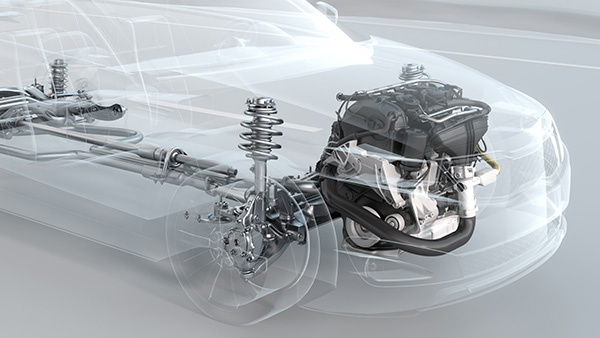
Ever wondered what actually makes your car go? You might think it's just the engine, but there's a lot more to it. The drivetrain is a complex network of parts that transfer power from the engine to the wheels. Without it, even the most powerful engine would be useless. Curious to know more? Buckle up as we explore the fascinating components of a vehicle's drivetrain. The Engine While not technically part of the drivetrain, the engine is the powerhouse that initiates the process. It converts fuel into mechanical energy, setting everything into motion. Think of it as the beating heart that pumps life into your vehicle. Without the engine's energy, the rest of the drivetrain components would have nothing to work with. Transmission Next is the transmission, arguably one of the most crucial parts of the drivetrain. The transmission manages the engine's power and delivers it to the wheels in a controlled manner. It adjusts the gear r ... read more
Posted on 4/28/2024

Ever wonder why your car seems to age faster than others? It might be because of your driving habits. From slamming on the brakes to neglecting regular maintenance, certain behaviors can take a toll on your vehicle's longevity. 1. Ignoring Maintenance Milestones Your car relies on regular maintenance to stay in top condition, but how often do you actually follow the recommended service intervals? Ignoring routine tasks like oil changes, tire rotations, and fluid checks can accelerate wear and tear on vital components. Stay on top of your car's maintenance schedule to keep it running smoothly for years to come. 2. Rough Acceleration and Braking Do you have a heavy foot when it comes to accelerating and braking? Constantly flooring the gas pedal and slamming on the brakes can put undue stress on your car's engine, transmiss ... read more